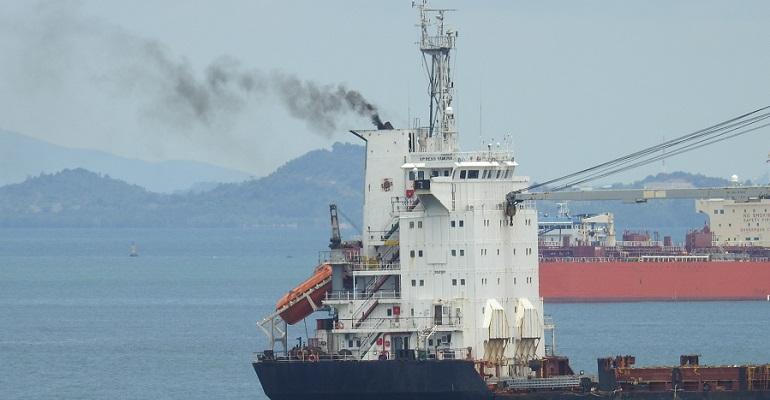The report titled “An Overview of the Policy Options to Close the Competitiveness Gap and Enable an Equitable Zero-Emission Fuel Transition in Shipping” explores various policy options grouped as economic instruments, direct regulatory approaches, information programmes, voluntary initiatives and national and regional policy measures.
The possible impacts of each group of measures on the market and emissions from shipping over the coming decades are considered in depth, before a cocktail of measures is put forward as a way to support zero-emissions fuels and phase out fossil fuels.
The report’s potential route forward is a five-part policy package, comprising a global market-based measure, an effective and fair recycling of revenues from the market-based measure, a direct command-and-control measures, national and regional policy developments and the promotion of voluntary initiatives and information programmes.
The market-based measure will need to generate significant revenue and be capable of setting a carbon price that works in both the near- and long-term. In the near term, the mechanism must incentivise the adoption of carbon emission reduction technologies and in the longer term a switch to zero-emissions fuels should be promoted.
The report forecasts that to reduce GHG emissions by 50% by 2050, the carbon price would need to average $173/tonne, and to reduce emissions by 100% by 2050, the price would need to average $191/tonne. In both cases, the model starts with a low price of $11/tonne in 2025, jumping to around $100/tonne early in the next decade and then to $264/tonne for the 50% scenario and $360/tonne for the 100% scenario.
“These two price jumps may be challenging from both a political and practical business perspective; thus, it could be better to set the initial carbon price at a higher level than the model and follow a smoother increase, thereby easing potential economic shocks of sharp price increases,” said the report.
Revenue from any market-based measure should be recycled into the maritime industry to support the decarbonisation effort, driving demand and supply of zero-emission fuels. A fuel mandate was given as an example of a command-and-control measure to send a clear market signal that a move to zero carbon fuels will happen.
With around 30% of greenhouse gas emissions from shipping created by domestic shipping, national and regional measures have potential to greatly impact the decarbonisation of shipping and complement and inform any global measures. Enabling first movers, stimulating innovation and developing zero-emission trade routes for mutually-supporting countries were given as examples of the benefits of more localised action.
The fifth prong of the proposed route forward, promoting voluntary initiatives and information programmes is seen as a route to stimulate investment in research and development and encourage knowledge sharing.
“The cost of zero-emission fuels must be significantly reduced to close the competitiveness gap with fossil fuels. To bridge this gap, we need to realize the potential of public-private collaboration. As companies, we must develop and deploy solutions at scale while policy makers must put in place the necessary regulation to make zero-emission shipping commercially viable and the default choice by 2030,” said Christian M. Ingerslev, CEO of Maersk Tankers.
Isabelle Rojon, Principal Consultant at UMAS and lead-author of the report, said: “Decarbonization policy for shipping needs to be as much about equity and fairness as it is about climate change mitigation. Vast inequalities exist globally, many of which are worsening in the face of climate change. With careful policy design and use of carbon pricing revenues, we can ensure that maritime climate policies do not exacerbate these inequalities. Furthermore, embedding equity into policy measures will help secure the multilateral agreement that is urgently needed.”
Closing the Gap was authored by Dr Domagoj Baresic, Isabelle Rojon, Dr Alison Shaw and Dr Nishatabbas Rehmatulla from UMAS and UCL for the Getting to Zero Coalition, comprising the Global Maritime Forum, Friends of Ocean Action and the World Economic Forum.
Copyright © 2024. All rights reserved. Seatrade, a trading name of Informa Markets (UK) Limited.
Add Seatrade Maritime News to your Google News feed.  |

